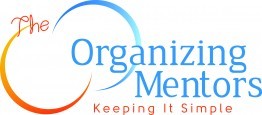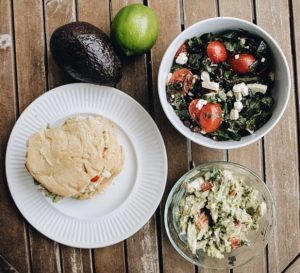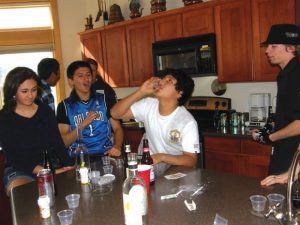Cyndi Turner's Blog, page 22
January 16, 2018
Am I Ready to Change My Drinking Patterns?
Check out Cyndi’s most recent article in GoodTherapy.org entitled Am I Ready to Change My Drinking Patterns?

January 8, 2018
Miracles Within Miracles
Unblinded is the true story of Kevin Coughlin who became suddenly blind due to a rare genetic disorder known as Leber’s. Twenty years later, without medical intervention or explanation, his sight miraculously began to return.
[image error]
But that’s not the full story. At the lowest point of his life—blind, jobless and broke, Kevin decided to fight for his sobriety. Too poor to afford medical intervention, Kevin endured the painful process alone, curled into a fetal position on the floor of his New York City studio apartment.
Enjoy the book trailer and excerpt from Kevin’s memoir below. Unblinded: One Man’s Courageous Journey through Darkness to Sight is available for preorder on Amazon or Barnes & Noble.
Excerpt from Unblinded:
Kevin arrived at the location on Little West 12th Street twenty minutes early. He parked himself in front of the entrance, despite the cold. He was shaking and sweating even though it was January. He contemplated returning to his apartment when he heard a cheerful voice call out.
“Hi, I’m Bob. Are you looking for the meeting?”
“Yes, I am. I’m Kevin, and this is my guide dog, Ruger.”
“Great, come on in,” Bob said with a kind and reassuring voice. Ruger, always a good judge of character, seemed to take an instant liking to Bob.
Bob introduced Kevin to the other early arrivals in the room. Dave arrived a few minutes later. Everyone was warm and gracious. They all spoke the same word—welcome.
Once the meeting got started, the speaker was introduced and greeted by applause. She told her story of being raised by Norwegian immigrant parents in a rural farming community in upstate New York. She described the trauma of losing her mother at a young age and how that had shaped her.
Though Kevin couldn’t relate to any of the specifics of her life, he nonetheless felt a deep association with her pain. The details of their respective upbringings could not have been more different, and yet he had experienced the same underlying feelings she powerfully described—never fitting in, constantly feeling different and out of place but not knowing why. She explained that at first she drank to be more social and fit in; later she used drinking to numb feelings of loss or pain. His drinking history was identical.
Kevin knew that this group was just what he needed. Kevin had always experienced low self-esteem coupled with grandiosity and a huge sense of entitlement. Kevin heard person after person share the same dichotomous feelings. One speaker summed it up best. “I felt like the biggest piece of dog poop that the entire universe revolved around.”
Up until then, Kevin had never thought of himself as an alcoholic. He knew he drank too much, and at times had lost his dignity as a result, but he still felt his behavior fell into the “normal drinking range.” To him, an alcoholic was someone who had lost everything and was living on Skid Row in Los Angeles or the Bowery in New York City. But one story forever changed Kevin’s view of what it meant to be an alcoholic.
One night, a serene man with thirty years of sobriety spoke of having once been a naval officer. He’d not only thrown away a promising military career, but also found himself living on the Bowery.
He recounted living on the street panhandling to get his next fix of wine or malt liquor. With great emotion, he explained how his journey of recovery had begun when a sober friend found him on the street and brought him to his first meeting. Kevin was stunned into silence, but another group member spoke up.
“I may have had a problem with alcohol, but at least I was never living on the Bowery.” The ex-naval officer was polite but direct.
“My dear, the Bowery is not a place, it is a state of mind. Whenever and wherever an alcoholic experiences the demoralizing shame of not remembering what had happened the night before, they are experiencing their own personal bowery.”
Kevin left that afternoon a changed man and could not wait to attend the next meeting. For the first time in his life, he felt that he belonged in a group. The new group gave him renewed hope. Each story of triumph over adversity bolstered his confidence that he too would succeed in becoming and remaining sober.
Blind, broke, jobless, and frustrated, Kevin found it difficult to get through the next few months. But he had one big thing going for him.
He was sober. It was a new beginning.
Traci is the author of Unblinded (Morgan James Publishing, April 2018) and Inflection Point: War and Sacrifice in Corporate America (Pegasus Books, 2016). She is also an attorney with a practice in intellectual property litigation in NY City. Traci can be reached at www.tracimedfordrosow.com.
December 13, 2017
The 3 Biggest Mistakes that Keep You from Living a Life that is Powerful Beyond Measure
Each day we critique ourselves in what we have and have not done, the way we reacted to situations and how we could’ve done a better job. Often people feel unhappy with what they’ve done each and every day. This leads to a life that is dissatisfied, frustrating and even depressing.
This cycle becomes contagious. It’s difficult to find your way out, to remove the shackles and see the horizon to a new beginning, where life is exciting, hopeful and that you feel EMPOWERED to make changes and choose wisely to create a Life that is simply amazing.
Taking personal responsibility is essential but it goes even further than this. When you realize that ONLY You can ultimately impact every area of your life you’ve EMPOWERED Yourself to see your greatness and experience life from a different perception where amazing and even miraculous outcomes become a daily occurrence.
I have written a small but powerful FREE EBOOK: The 3 Biggest Mistakes that Keep You from Living a Life that is Powerful Beyond Measure. http://www.cynthiamazzaferro.com/ebook/
This is a book that will change your life. When you realize the mistakes that you continue to repeat and repeat, then you can choose to take a different course of action. If substance abuse or any addictive behavior is part of your life or you are floundering with what to do, this e-book will help you uncover the underlying, unresolved issues and assist you in making those all-important Empowering Decisions.
Learn how our past continues to control our present and limit our future
See how your Protective Walls can negatively impact your potential, engagement, and success!
Understand why clarity of your desires and goals are essential if you want to make progress.
Living in the Empowerment Zone allows you to feel Powerful, Capable, and Able! You are AMAZING! You have limitless potential and success, abundance and happiness awaits you!
All you have to do is find Your Power WITHIN where ALL things are POSSIBLE!
No one should have POWER over you. If you feel powerless or others make you feel small, insignificant and unimportant, I have GOOD NEWS! That’s because you’ve given your POWER AWAY.
Check out this amazing e-book and sign up to the webinar call in to also hear about 3 Amazing Secrets for Creating the Life that is Powerful Beyond Measure. http://www.CynthiaMazzaferro.com/webinar
The New Year is coming. Are You Ready? 2018 is upon us and it’s the perfect time to STEP into your EMPOWERMENT ZONE where you can make amazing and even miraculous changes in your life. You deserve this and so much more!
Cynthia Mazzaferro is a Visionary and Motivational Speaker, international award winner and #1 Best-Selling Author, Energy, Medical and Intuitive Healer, Reiki Master, and Powerful Beyond Measure Life Coach. Check out her books Powerful Beyond Measure and Shine Your Light on her website at http://www.cynthiamazzaferro.com or https://www.facebook.com/ThePowerWithinCynthiaMazzaferro/.
November 29, 2017
Mindful Eating During the Holidays
The holidays are a time filled with fun and celebrations. While they are full of excitement, they can also be a time of heightened stress and overeating. Tis the season for holiday parties, bake-offs and cookie swaps in addition to the added stress of shopping and planning—a recipe of events that can lead to emotional eating.
Does this sound familiar? If so, you are not alone. It can be the norm to overeat and gain unwanted holiday pounds. This can lead to feeling uncomfortable, anxious and even more stressed. It also can lead to setting unrealistic New Year’s resolutions that include losing weight once the holidays are over.
But what if instead of focusing on food and weight during the holidays, you listened to your body and focused on friends, family and holiday festivities? Below are a few things you can do this season to enjoy yourself without the guilt of holiday eating.
1. Notice your feelings
Often times overeating can occur due to underlying feelings that we might be trying to suppress, so it is important to recognize any feelings coming up during this time. Is it stress, anxiety, worry? If so, try to work through these feelings and find other ways of coping beyond food.
2. Pay attention to your body’s signals
Your body will tell you when it is hungry, full or craving certain foods. While it can be hard to pay attention when you are socializing, try to pause every now and then and tune in to your body. If you are hungry, eat. If you are full remember that you can eat again when you are hungry. Overeating can sometimes lead to lethargy and irritability, so try to focus on staying energized. Also know that overeating is a normal part of life, so if it happens try not to dwell on it.
3. Find time for self care
Holidays are about giving, but it is important to take time for yourself. Taking breaks and doing stress-relieving activities can reduce cravings and the habit of reaching for food. What brings you joy and relaxation? For each person it is different, but try to make a list and choose activities that you enjoy. Examples include meditation, painting, journaling, being in nature or taking a bath.
4. Be mindful of food and alcohol intake
While intentions can be good, sometimes with all of the hustle and bustle it is easy to eat mindlessly until you are overfull. Try the following:
If you are at a buffet, make a plate of food rather than picking throughout the night. This will bring awareness to your food intake.
Incorporate vegetables. Think of the plate method. Make ½ of your plate fruits/vegetables, ¼ of your plate protein, and ¼ carbohydrates.
Keep count of alcoholic beverages and have a plan before heading out for the night. Hydrate with water in between drinks and sip slowly to savor your beverage.
Most importantly, have fun this holiday season! Enjoy this magical time of year and focus on friends, family and loved ones.
Allison Tepper is a Registered Dietitian in the DC Metro area, with a new office open in Ashburn, VA. She has extensive counseling experience working with clients with needs ranging from weight loss, nutrition therapy for disease states, emotional eating, IBS, disordered eating and more. Allison is passionate about helping clients achieve their goals through an overall lifestyle approach that is unique to each individual. Her focus is on creating healthy lifestyle changes through mindful eating, where the additional benefit is achieving a desirable weight. Interested in making positive changes to your health? Contact Allison today at allisonmtepper@gmail.com or visit www.teppernutrition.com
November 28, 2017
De-clutter Your Outside to Find Space in Your inside
Lisa Geraci Rigoni, owner of The Organizing Mentors
I believe people bring too much stuff into their lives for many reasons. First, it makes us feel good. We feel rich; we are comforted; safe. We also seem to think that the more stuff we have, the happier we will be. Will we be seen as more successful, thriving, fulfilled? Envied, looked up to, or more popular?
Some people love the feeling of having stuff around them. To not be in need of anything. To have it all at their fingertips, at their disposal: the newest gadgets and models with all the upgrades. It’s a good feeling. But is that real and will it last?
Many people overindulge and bring excess into their lives. Maybe they’re trying anything to make their days easier to deal with. Stuff keeps them busy, occupied and always doing so they do not have to deal with the “tuff stuff.” The inside Clutter.
This excess appears in behaviors such as too much food, liquor, negative thoughts, awful relationships, or spending. They try to fill their surroundings because they may not feel adequate or worthy of just being who they are. There are also mental disorders that play a huge role into this behavior as well.
Many people feel lost inside. They assume that those who have stuff must be happy. They must be worthy, popular, fun and smart because they have all the stuff. So, if we get stuff, we will be happy too. When all the stuff is really doing is handicapping them and filling their lives with distractions, confusion, excuses and fantasies…dreams?
When this happens, when all of the “space” gets cluttered—mentally and physically—life becomes overwhelming, small, and lonely.
As a young girl, I experienced these feelings on and off throughout my childhood. Growing up in a typical middle-class family in the suburbs of Chicago, as the only girl, with three brothers, my mom would take me shopping at the JCPenney Outlet. She would basically buy anything that was on sale and in my approximate size.
We would come home with bags and bags and I remember feeling rich and lucky, almost “better than”, if not at least equal to my friends who seemed to have everything. Over time, I learned not to look directly into my dad’s eyes because I knew behind his huge smile and the love he felt for us, he was thinking: “How the hell am I going to pay for all of this?” Even though he had a smile from ear to ear, he was full of fear and what now? He was cluttered mentally and physically.
It took me a long time to be able to not have to fill myself up with stuff: food, clothes, work, friends, or events. Now, when I feel the mental clutter, I look at my surroundings and see what can be changed and change it. If there isn’t anything outside, I go inside and do a little mental de-cluttering.
If you have experienced any of this, take a look and see what changes, if any, would make your life easier and less stressful. All it takes is a little time, focus, and energy. And perhaps, less Stuff.
Lisa Geraci Rigoni is a professional organizer and owner of The Organizing Mentors, LLC. Lisa and the Team Mentors help clients remove clutter from any area in their home and work spaces while providing them with guidance and encouragement to develop new habits. www.theorganizingmentors.com

November 1, 2017
Is Your Teen Partying Too Much? When To Intervene
With homecoming parties and celebrations after football games going on throughout our area, the topic of teen drinking is very relevant this fall. As parents, we try to find balance in our parenting style. We want to let our kids have experiences that bring them happiness and fun. We sometimes talk ourselves into looking the other way and letting them party with their friends. Some parents event permit alcohol consumption by their kids and their friends in their home. Here is an article to check out to caution against this decision.
What is the right balance of providing rules and expectations for their behaviors versus being permissive and passive potentially leading to unhealthy and dangerous decisions? How do you know when your teen is experimenting or engaging in a regular habit? When will that habit will progress to other drugs or more severe drinking?
It has been well documented that teens behave in a way that is related to rules about drinking at home. The more teens are permitted to drink at home, the more they actually drink in other places. You could be setting up your child to drink and have impacted memory and functioning. There are many tips out there about how to support your adolescent’s social life in a healthy way by hosting parties that do not include drugs or alcohol.
There could be something else going on with your teen that is leading to their drug or alcohol use. Often adolescents want to be in an altered state of mind to not face some of the feelings they have when they are sober. They surround themselves with peers that are also using and numbing themselves from their emotional struggles. Know that addiction has a progression in stages, ranging from experimentation to physical dependency. The time to intervene to stop the progression is during the teen years when alcohol is first introduced.
If you want to brush up on some information related to the real dangers of marijuana use check out The National Institute on Drug Abuse who just posted a letter to parents on Marijuana: Facts Every Parent Needs To Know. Marijuana has changed over the years. The increased potency is impacting their lives in a more significant way than in the past. Talk to your child about your family values on drugs and alcohol. This is your best chance to prevent addiction. People who start using substances regularly by age 15 have a 50% chance of developing an addiction later in life.
If you think your child might be using drugs or alcohol, don’t wait until the problem gets worse. Reach out to a professional for some advice. A knowledgeable clinician with a focus in addiction treatment will know the best way to assess the severity and make a recommendation on how to help. There is support out there.
Angie Harris, MA, MSW, is a therapist with Insight Into Action Therapy. She enjoys helping people learn new tools to find balance in their lives. Angie co-facilitates one of the Dual-Diagnosis Recovery Program © group at Insight Into Action Therapy in Ashburn. Angie is a Smart Recovery ® facilitator and practices Harm Reduction and Moderation Management for Alcohol Use. She has worked in the field of addiction treatment in both outpatient and inpatient treatment settings and is a resource in treatment consultation. She provides individual, family and group therapy at the practice. If you are interested in seeking services, give her a call at (703) 646-7664, ext 10 or email her at aharris@insightactiontherapy.com . If you are unsure if drinking is a problem in our life take the quiz here .
October 24, 2017
Where Do You Fall on the Spectrum of Alcohol Use?
Check out Cyndi’s most recent article in GoodTherapy.org entitled Where Do You Fall on the Spectrum of Alcohol Use?
October 11, 2017
Small Business Finalist Spotlight: Insight Into Action Therapy
Check out the Loudoun County Chamber of Commerce Small Business Finalist Spotlight: Insight Into Action Therapy
September 26, 2017
Help! This is More Than a Phase
What do you do when your teen is using drugs or alcohol?
The first time you caught them, maybe you referenced the D.A.R.E. Program, maybe you grounded them, or maybe you took away their electronics. You likely had a sit-down conversation that substance use was not acceptable. You eventually moved past it and worked to trust him or her again.
Then the unimaginable happened. Again. You caught them drinking or smoking marijuana. Or another parent or teacher contacted you about suspected substance use. Maybe you found contraband in their room or backpack. No, you’re not crazy. Yes, you were clear the first time. You are correct: this is not acceptable behavior even though your teen says: “Everybody is doing it” or “Marijuana is practically legal.” It seems like many neighbors, friends, and colleagues have turned a blind eye and say this “This is just what kids do.”
You are probably overwhelmed and even questioning our own judgment. You don’t think your kid is addicted but it seems like more than a phase. So where do you turn? What are your options?
Please understand that addiction is not something that happens overnight. It is a chronic, progressive disease. While your child may not be addicted, their behavior should be taken seriously. How this behavior is assessed determines the appropriate level of treatment.
It is unfortunately a common occurrence that a family, overwhelmed with their teen’s behavior, gets recommended for a therapeutic intervention that is more than necessary. This is where understanding that substance use occurs on a continuum: mild, moderate, and severe is critical and a thorough assessment by a licensed, trained clinician who is experienced in working with teens is critical. Utilizing an approach of least to more restrictive intervention, allows for your child to remain at home, in school, and involved in healthy activities. The American Society of Addiction Medicine (ASAM) has established five main continuum levels of care for substance use disorders treatment.
At Insight Into Action Therapy (IIAT) we offer specialize treatment for adolescents and their families. Cyndi Turner and I developed the Dual Diagnosis Recovery Program© (DDRP). The DDRP is a Structured Outpatient Program. It provides an alternative resource for teens and their families dealing with co-occurring mental health and substance use disorders. Unlike a traditional adolescent Intensive Outpatient Program (IOP), which is designed for people more progressed on the addictive spectrum, we do not require numerous hours and days of treatment in a week. We believe it is just as important for teens to maintain participation in their home environment, school, job, and activities while receiving therapy.
Most adolescent IOPs require a primary diagnosis. In this situation, it would be something related to substance use. This primary diagnosis jargon is insurance driven and determines the therapeutic approach. It is not necessarily in the best interest of the teen or the family. What if you had a teen with substance related behavior but it was actually as a result of an underlying mental health problem? The majority of adolescent IOPs are either for mental health or substance use, rarely both. But your child may be experiencing both, so what are you to do?
IIAT offers an individualized family approach to treating clients. It’s not a cookie cutter, one size fits all model driven by diagnosis and insurance. We accomplish this by keeping our group sizes small. This allows us to get to know your family, because your child’s struggles affect all of you. In fact, family involvement in the therapeutic process is the biggest indicator of recovery and a successful outcome.
Another important distinction between the DDRP and an adolescent IOP is that while there is a start date, the end date is not predetermined. The belief that all of your teen’s issues will be resolved in 10 or 12 weeks (the traditional length of an IOP) is flawed. It should be based on how your teen is progressing. Insight Into Action Therapy uses Best Practice Models to determine successful completion. It’s not just about the drug or alcohol use. According to the National Institute on Drug Abuse, (NIDA) treatment outcomes improve with longer periods of care.
You should take action when your teen has been found to be using drugs and/or alcohol. Adolescent IOPs and inpatient programs are not always the best option nor do they yield the best outcomes. Make sure that the person completing your assessment has experience with your child’s issues, is licensed, and has substance use disorder credentials to give you the best treatment recommendation. Don’t be afraid to get a second opinion.
Whichever program you decide, it should offer some basic components:
Individualized recommendations and treatment
Group Therapy
Individual Therapy
On-site Drug and Alcohol Testing
Family Therapy
Lastly, be careful looking at an IOP or inpatient program as the solution. If you go all-in with the most restrictive treatment interventions, you may use up your options too quickly.
August 30, 2017
A Parent’s Thoughts About Back to School
So I left work early last week. I rushed home to be there in time for when my middle schooler got off the bus. I know she doesn’t like to be home alone. While catching my breath and eagerly waiting to hear how the first day went, I got a text from her: “mom can I hang out @ char’s house?”
This is from the daughter that I affectionately call “Velcro.” You know, as in sticks to your side. Like when you want to sleep past sunrise on Saturday morning and she jumps on the bed and yells “Wanna play?” Or you’re in the bathroom and she follows you in and asks “Whatcha doin?”‘ She now vacillates between being my little girl in pink and a social butterfly who I hear whispering to her friends about boys. Does this mean you are no longer my snuggle buddy? When did you need a bra?!
Then there’s my older daughter whom I shall call “Body Ruiner.” I used to have an amazing, flat stomach. Now it’s just…mush. I had a brief moment with her when she was eleven and we went together to see Divergent. I thought: “How cool is this? I now have a movie buddy to go see all the shows my husband doesn’t want to see.”
I couldn’t wait for the next installment to come out. On premier night she asked me to go see it. These days it’s rare that she comes out of her room, much less speaks to me. So I ran upstairs to get changed. A few minutes later she came into the bedroom and asked me why I getting dressed up. When I looked confused, she clarified: “I’m going with my friends. I just want a ride.” Oh.
Parenting is cruel. You give up your whole life to raise them. Then they leave you. What am I supposed to do with myself now? And why do they think I am so stupid? I do have two advanced degrees, two licenses, and a certification that all say I am an expert on teenagers. People pay me a lot of their hard-earned money for my advice on parenting. I’ve worked with kids for ten years before you all were even born. And if I have no fashion sense why are several pairs of my shoes and shirts in your closet? Why do you keep taking my makeup if I look so bad?
I have couple of years before they leave for college. Body Ruiner threatened to leave for the other coast and never come back. Why? Everybody else likes me.
On college drop off day, will I sit in your old room in your room and cry? Or think about listing the house and go island hopping? She’s already told me she’s not having kids. Oh yes you are. After over a year your colicky crying for hours at a time you are not going to deprive me of the Parents Curse. You know the one where all parents tell their kids: I hope your kids turn out Just Like You.
There is heartbreak and happiness at every stage. It’s a process of letting go. The new mom who drops her infant off at day care and cries more than the baby does. The parent who puts their kindergartener on the bus for the first time. The hand that is now longer held while walking to third grade. Or not even being allowed to leave the house while you make your way to middle school. Don’t even get me started about high school.
Right now I’m finishing a healthy dinner that you will tell me is gross. You would rather have Chipotle. Then I’m going to pick you up from practice, come home, and then turn around and to go back to the same school just so you can shower before the game.
Where are my keys and wallet? At this stage I’m just a chauffeur and ATM. I wonder: what’s next?









